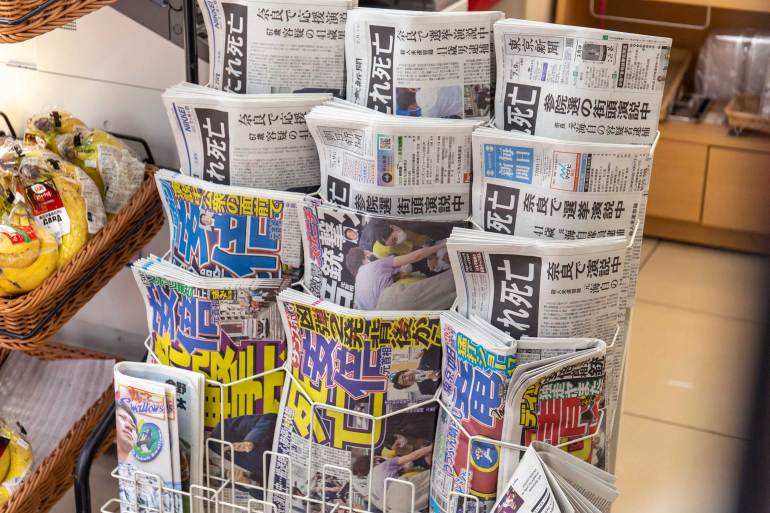‘Like time had stopped’: Japan grapples with Shinzo Abe’s loss
The former prime minister’s body returns to capital Tokyo as a shocked nation comes to terms with his assassination.
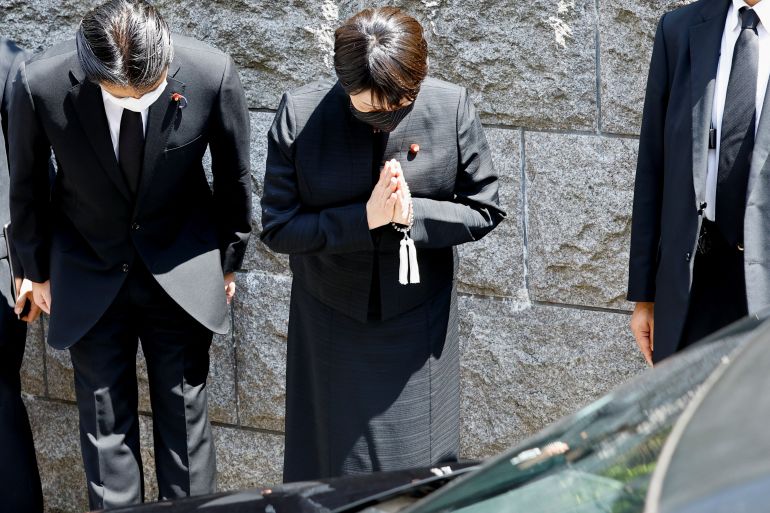
Tokyo, Japan – The fatal shooting of former Prime Minister Shinzo Abe in the western prefecture of Nara has sent shockwaves through Japan, a country where firearms are highly regulated and gun violence is rare.
Abe’s body was returned to Tokyo on Saturday as dozens of journalists gathered outside his Tomigaya residence in the capital while joggers and people walking their dogs passed by.
Keep reading
list of 4 itemsShinzo Abe fatal shooting: A look at Japan’s gun laws
Tributes pour in as Japan’s Shinzo Abe dies after being shot
Japan’s ex-PM Shinzo Abe dies: What we know so far
Fewer than 10 police officers were on the ground before 8am outside the residence, but a few streets back, a significantly heightened police presence was visible. Al Jazeera counted at least two dozen unmarked and marked cars, while officers prowled the area.
Abe, 67, remained an important figure in Japan’s political sphere, wielding significant influence in the governing Liberal Democratic Party (LDP) party until his death.
Prime Minister Fumio Kishida, often referred to as Abe’s protege, said he is in a state of disbelief. “I am simply speechless over the news of Abe’s death,” he told reporters.
‘Like time had stopped’
Tomigaya, where Abe lived, including during the period he served as prime minister, is a leafy, central neighbourhood – home to embassies and popular cafes and restaurants.
Shota Tanamachi, a barista at Coffee Supreme, a cafe visited by Abe, was shocked by the assassination. Abe was someone he saw around the neighbourhood.
“Yesterday, it was awful,” Tanamachi told Al Jazeera. He said he tried to avoid looking at the images of the shooting which dominated the front pages of Japanese newspapers on Saturday morning.
Stunned residents in Japan were glued to their phones as NHK, the country’s public broadcaster, played footage of the shooting on loop and details about the shooter were slowly revealed during the day.
Tokyo-based broadcaster Chris Gilbert described a “surreal, heavy silence” as the news broke that Abe had died.
“When the news hit … it was like time had stopped. Everyone was standing and looking at their phones. I think everyone was realising the same thing at the same time,” he said.
From those fond of Abe came an outpouring of grief. In Nara near the train station where he was shot, residents laid flowers and tokens, prayed and took photos.
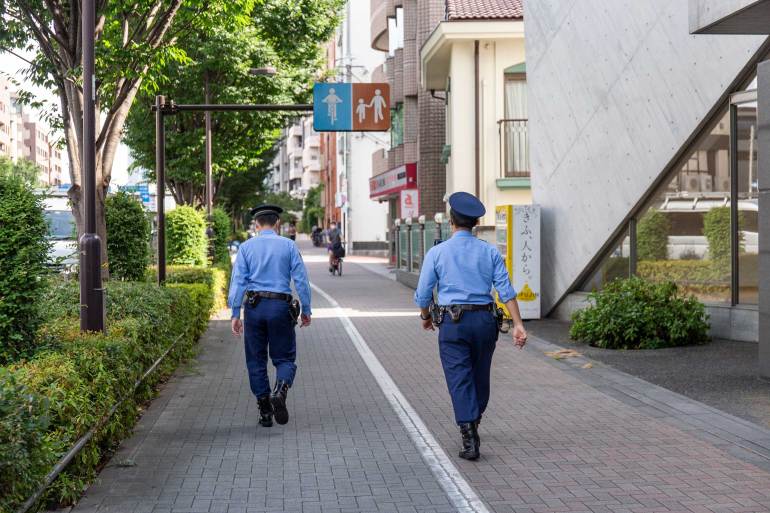
In a statement, Rahm Emanuel, the US ambassador to Japan called Abe “a world leader” who was “ahead of his time”.
Ichiro Matsui, leader of the opposition Nippon Ishin (Japan Innovation Party), told media that while the two belonged to different parties, they “agreed on the idea of making Japan better”.
Tokyo Governor Yuriko Koike, a former LDP member, expressed shock at the news. “No matter what the reason may be, I simply cannot tolerate this act of barbarism,” she said.
While Abe boasted of close relationships with heads of state, he is often fondly remembered in pop culture for appearing as Super Mario at the 2016 Rio Olympics.
But in Japan, his image is more complex.
A 20-year-old creative business owner who lives and works in Tomigaya and declined to give his name, described himself as “not at all” politically engaged, but recalled Abe as a “polarising figure” during his time as prime minister.
He found the weapon used the most surprising detail. “What? Guns in Japan?” he asked in reaction to Friday’s assassination.
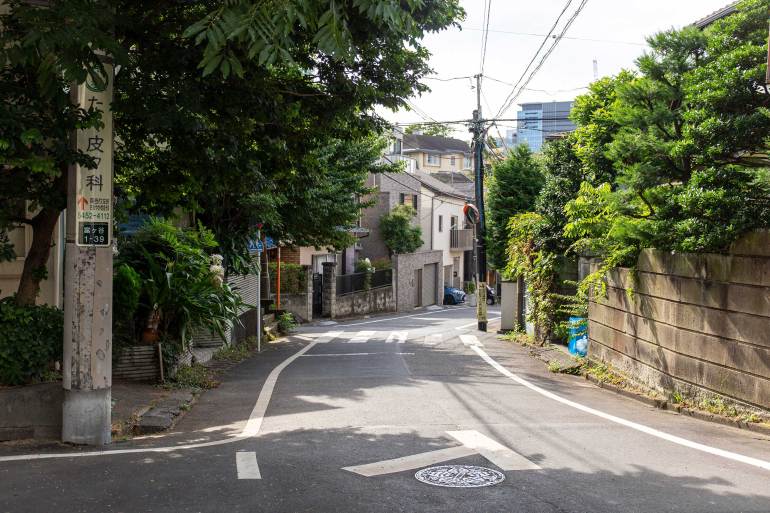
“I don’t think it’s possible to have [a gun] in Japan,” he said. “I’ve shot some guns, I’ve seen some guns, but in Tokyo, in Japan, never.”
Police have since confirmed the weapon that killed Abe was homemade.
Mari Iwata, a media professional in Tokyo, described Abe as “a villain”, but was stunned by the shooting, saying those opposed to political leaders should use the vote, not violence.
Another Tomigaya resident said while there have been random acts of violence in Japan, such as mass stabbings, “it is strange to see [gun violence] here”.
“It’s unbelievable, it’s like something you see in movies, something that isn’t in Japan.”
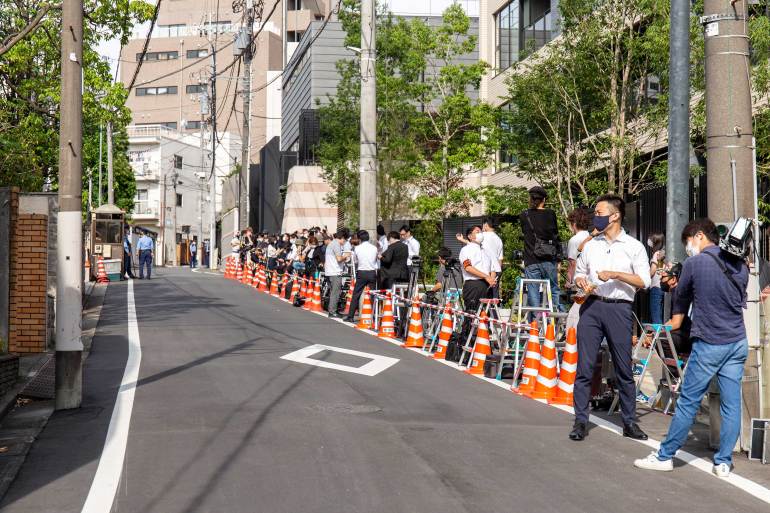
Election to go ahead
In streets around Tomigaya, sun-faded campaign posters remain dotted around. Officials say the elections will go ahead as planned.
Director of the LDP Public Affairs Department Kono Taro tweeted he was “deeply shocked and saddened” by Abe’s passing, and called serving in his cabinet an honour.
“The LDP will not be deterred by violence and will continue our election campaign to the end,” he wrote.
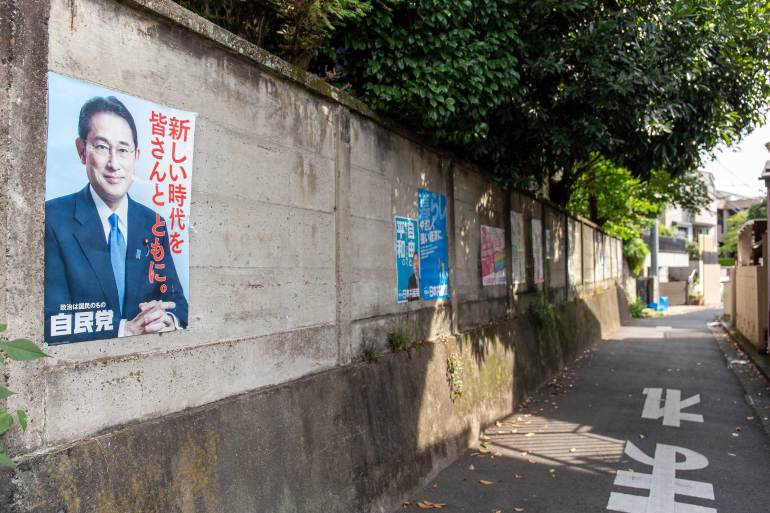
Kishida worked closely with Abe, and the former prime minister’s policies have served as something of a blueprint for the party.
Abe, who pushed to rewrite the country’s pacifist constitution, strongly backed Kishida’s push for constitutional reform amid shifting geopolitical dynamics and aggression from North Korea and China in the region.
If Kishida wins enough support during Sunday’s upper house elections, he could become the first prime minister to change the constitution since its promulgation after the second world war.
As the nation grapples with the shock and many mourn the loss of Abe, the upcoming election results may bring more sharply into focus the effects of the former prime minister’s loss on the LDP.
